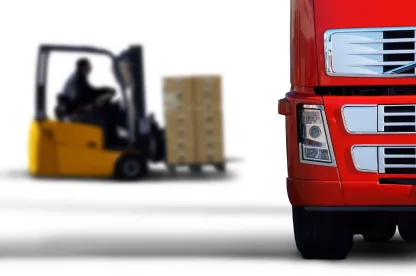Go-To Guide:
-
The Eleventh Circuit vacated a general duty clause violation related to a fatal “under-ride” forklift accident because the employer complied with its obligations under the OSH Act’s powered industrial truck standard.
-
The ruling may narrow OSHA’s ability to cite employers for violating the OSH Act’s general duty clause when the employer is otherwise in compliance with a more specific safety or health standard.
On May 30, 2023, the U.S. Court of Appeals for the Eleventh Circuit found that online pet retailer Chewy, Inc. was not liable under the Occupational Safety and Health Act (OSH Act)’s general duty clause for a fatal “under-ride” forklift accident at its Florida facility in 2018.
The ruling is significant for warehouse employers and non-warehouse employers alike because it narrows the Occupational Safety and Health Administration (OSHA)’s ability to cite employers for violating the OSH Act’s catchall general duty clause where the employer is otherwise in compliance with a more specific safety or health standard that covers or addresses the alleged hazard.
Background
Operating forklifts and other powered industrial trucks in warehouses can expose employees to workplace hazards. To protect employees from forklift-related hazards, employers must comply with OSHA’s powered industrial truck standard (Standard), which requires, among other things, that employers properly train forklift operators to ensure all operators look in the direction of, and keep a clear view of, the path of travel.
Despite OSHA’s Standard, over the last decade, OSHA has cited employers under the OSH Act’s general duty clause for exposing employees to a so-called “under-ride” hazard. The general duty clause is a catchall provision that requires all employers to provide employees with a work environment “free from recognized hazards that are causing or are likely to cause death or serious harm.” An “under-ride” occurs when the back part of a forklift is short enough to pass under the first shelf rack in a warehouse without hitting the rack. When this occurs, the forklift passes under the shelving, and operators can be injured if caught between the forklift and the rack.
Before the Chewy decision, when OSHA issued a general duty clause violation to employers for exposing employees to “under-ride” hazards, OSHA also required employers to abate (i.e., fix or eliminate) the hazard. However, abating the hazard required employers to expend significant capital to modify a facility’s shelving or fleet of forklifts to ensure forklifts would contact the horizontal rack beam so as not to pass underneath and injure the operator.
The Eleventh Circuit’s Ruling in Chewy, Inc. v. Sec’y of Labor
In 2019, OSHA issued a general duty clause citation to Chewy after a fatal “under-ride” forklift accident at its Florida facility in 2018. At the time, Chewy – like most warehouse employers – had policies and training in place to prevent under-rides, including training forklift operators to always look in the direction of travel. An Administrative Law Judge affirmed the general duty clause violation, but on May 30, 2023, the Eleventh Circuit held Chewy was not liable under the general duty clause and vacated the citation.
In vacating the citation, the Eleventh Circuit ruled that the Standard’s requirements for employers to train forklift operators, ensure they always look in the direction of travel when operating a forklift, and maintain the forklift at a safe speed all addressed the so-called “under-ride” hazard. Indeed, the Eleventh Circuit even noted OSHA itself had taken this position in prior litigation, and as well as in an OSHA Safety and Health Information Bulletin. Because there was no dispute over whether Chewy complied with the Standard, the court held the Standard preempts the general duty clause and thus the citation was improper.
The court also expressly rejected the Secretary of Labor’s view that a more specific safety or health standard preempts the general duty clause only when compliance with the specific standard – in this case the forklift standard – completely eliminates a specific hazard.
The Decision’s Impact
The Eleventh Circuit’s decision is welcome news for warehouse employers, especially those in Florida, Georgia, and Alabama (the states within the Eleventh Circuit), as the decision in Chewy is binding precedent for workplaces in those states. If warehouse employers in those states properly train forklift operators and ensure they look in the direction and path of travel while operating a forklift, pursuant to Chewy they would likely be in compliance with the Standard and thus not be cited under the general duty clause in the event of an “under-ride” incident. It also makes it less likely that warehouse employers will need to re-engineer their entire shelving system to eliminate “under-ride” events to comply with the Standard and OSH Act.
Warehouse employers in other states do not have the same protections, but they now have a legal precedent that may be used to defend against alleged general duty clause violations as a result of “under-ride” events.
Warehouse employers should consider evaluating their forklift operator training and forklift processes and procedures with experienced OSHA counsel to ensure compliance with the training and operation obligations under the Standard.




 />i
/>i

